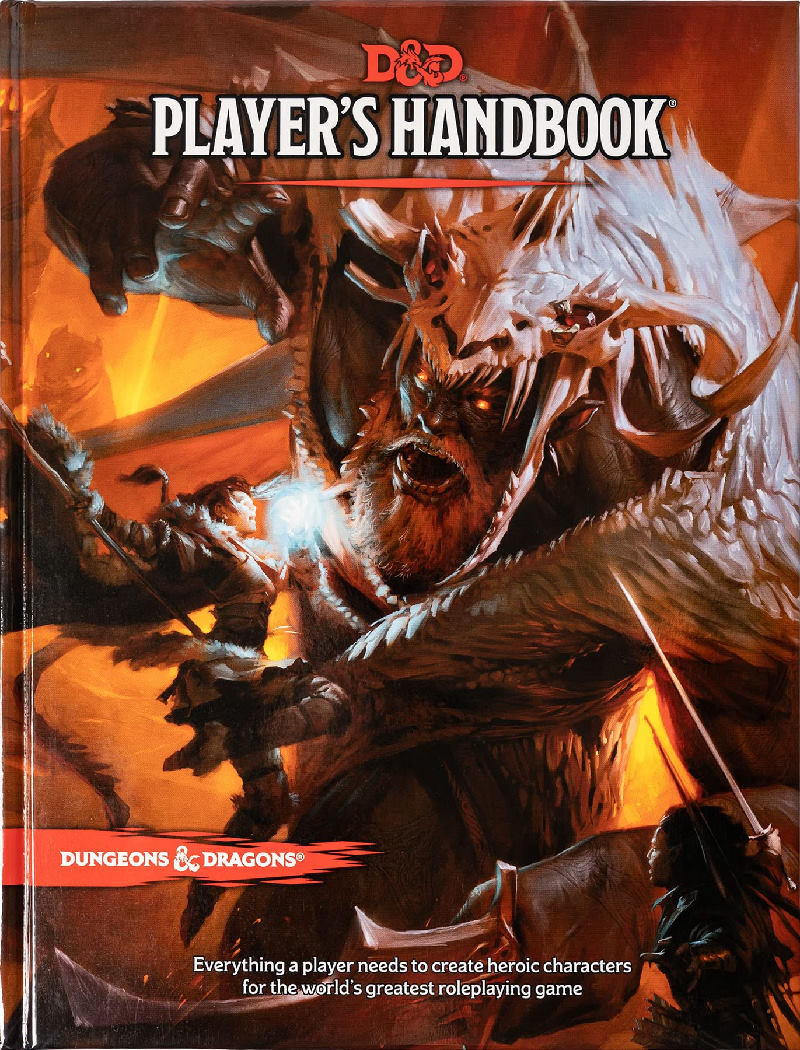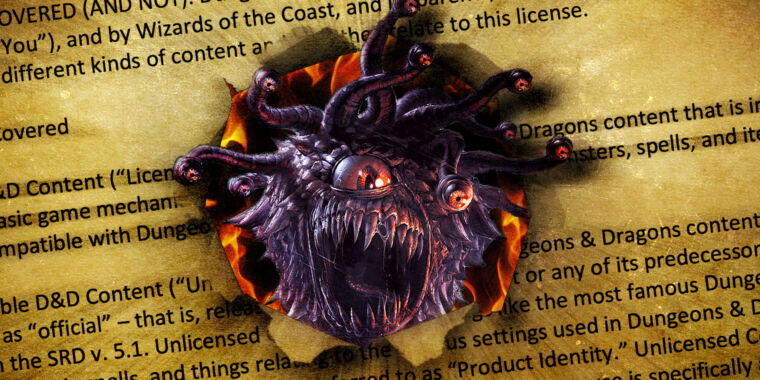Aurich Lawson | Wizards of the Coast
For decades now, Wizards of the Coast (WotC) has made the core framework of its popular Dungeons & Dragons RPG (D&D) widely available to other game makers as part of an expansive, royalty-free Open Gaming License (OGL). But a planned update to the license imposes more restrictive terms and royalties of up to 25 percent for some revenue from large companies, according to an early leaked copy.
The reported changes have some in the tabletop gaming community up in arms, with one organized group already calling the unreleased license update “a betrayal” and “objectionable, if not downright illegal.”
How did we get here?
WotC’s original Open Gaming License (version 1.0a) dates back to the early 2000s and establishes a relatively forgiving set of guidelines for creators hoping to build new creative content on top of the core D&D rules. The short document is mainly designed to help clarify which parts of WotC’s D&D publications are “Open Game Content” (e.g., rules and mechanics that would be difficult for WotC to copyright in the first place) and which parts constitute “Product Identity” (e.g., trademarked terms and copyright-protected characters and worlds created by the company).
In a 2002 interview, then-WotC VP and OGL architect Ryan Dancey said the OGL was “essentially exposing the standard D&D mechanics, classes, races, spells, and monsters to the Open Gaming community. Anyone could use that material to develop a product using that information essentially without restrictions, including the lack of a royalty or a fee paid to Wizards of the Coast.”
By allowing royalty-free licensed games based on these rules, WotC hopes to sell more copies of its core rulebooks.
The idea, Dancey said at the time, was directly inspired by Richard Stallman’s GNU General Public License. And this wasn’t just altruism on WotC’s part; Dancey said the license would encourage the kind of network externalities that would make the D&D rules system more popular, thus increasing sales of the game’s core rulebook and allowing others to profit off of content based on that system.
As the Electronic Frontier Foundation (EFF) explains in a recent article, agreeing to that original OGL license provided content creators with a reasonable idea of “what terms Wizards of the Coast will choose not to sue you, so you can avoid having to prove your fair use rights or engage in an expensive legal battle over copyrightability in court.” In the ensuing decades, tabletop RPGs like Pathfinder, 13th Age, and Call of Cthulhu have relied on that Open Gaming License as a legal framework on which to build games and businesses.
We’re taking our ball back
Fast forward to last month, when WotC confirmed that it would be releasing an updated version 1.1 of the OGL in early 2023, ahead of the planned One D&D game update.
While the announcement was pretty vague on the specifics, WotC confirmed the updated license would come with new requirements for those making commercial content on top of D&D’s base rules. Those making more than $50,000 per year from such content would be required to report that revenue to WotC, while those making more than $750,000 per year (a group WotC said encompasses “fewer than 20 creators worldwide”) would have to start paying a royalty on excess revenue above that threshold starting in 2024.
